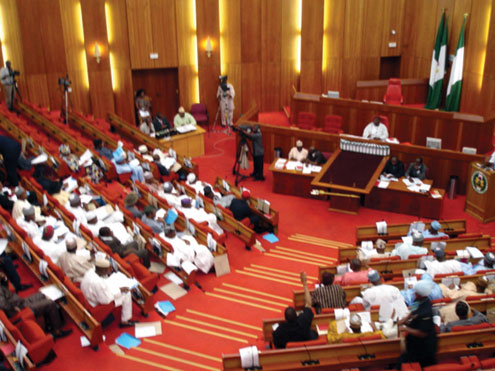Central bank goes tough on microfinance banks
In a bid to check abuse and to tighten the regulatory environment, the Central Bank of Nigeria (CBN) has insisted that microfinance banks in the country must comply with the new reporting format.
It said in a memo dated April 12 and signed by Olufemi Fabanwo, the director, Other Financial Institutions Department, that all microfinance banks must from the second half of the year adopt online rendition of their monthly returns, which commenced in January.
“All MFBs are required to render all subsequent monthly returns electronically. For the avoidance of doubt, the receipt of hard copy return will stop with the June 2011 return, after which only electronic returns will be acceptable,” the circular stated.
The online reporting is expected to strengthen the regulation of operators in the sector.
There are currently over 700 microfinance banks in Nigeria which the CBN has said is a daunting task monitoring. The regulator in September revoked the licence of 224 microfinance banks that were found to be ‘terminally distressed’ and technically insolvent.
When asked how microfinance institutions in the rural areas would be able to comply, CBN spokesperson, Mohammed Abdullahi, said no firm is exempted.
“They are all expected to comply regardless of whether they are in the rural areas or urban centres,” Mr. Abdullahi said.
“That is the condition. There is no rural area in Nigeria without Internet access. Once you buy the modem, you should be able to do so. This is a regulatory directive and all microfinance banks are expected to comply,” he added.
The CBN cited high level of non-performing loans, undercapitalisation in relation to the level of operations, poor corporate governance, and incompetent boards, as well as high level of non-performing insider-related credits, for the failure of some of the institutions.
The regulator also recommended that the directors and management of the closed banks who abused their positions would be handed over to the law enforcement agencies for investigation and prosecution, while those found guilty would be blacklisted.
CBN deputy governor, Financial Systems Stability, Kingsley Moghalu, attributed the failure of the sector to the impact of the global financial crisis which dried up credit lines and increased credit risk. He said it was the combination of these factors that had significantly weakened the microfinance sub-sector and its ability to achieve the policy objective of economic empowerment at the lower end of the market.
Since then, the CBN has said it would review the operational guidelines for MFBs in the country. This would include a qualification for chief executives and increase in minimum required capital.
The CBN estimates that a huge number of Nigerians are unbanked, with only less than two per cent of the rural populace having access to financial services.
“The eight leading Micro Finance Institutions (MFIs) in Nigeria were reported to have mobilised a total savings of N222.6 million in 2004 and advanced N2.624 billion credit, with an average loan size of N8,206.90,” according to the guideline report.
The report also stated that as at end-December 2004, the total currency in circulation stood at N545.8 billion, out of which N458.6 billion or 84.12 per cent was outside the banking system.
Microfinance institutions were seen as a means of mopping up much of the funds outside the banking system, a role which they have not been able to play effectively.
Source : 234next








